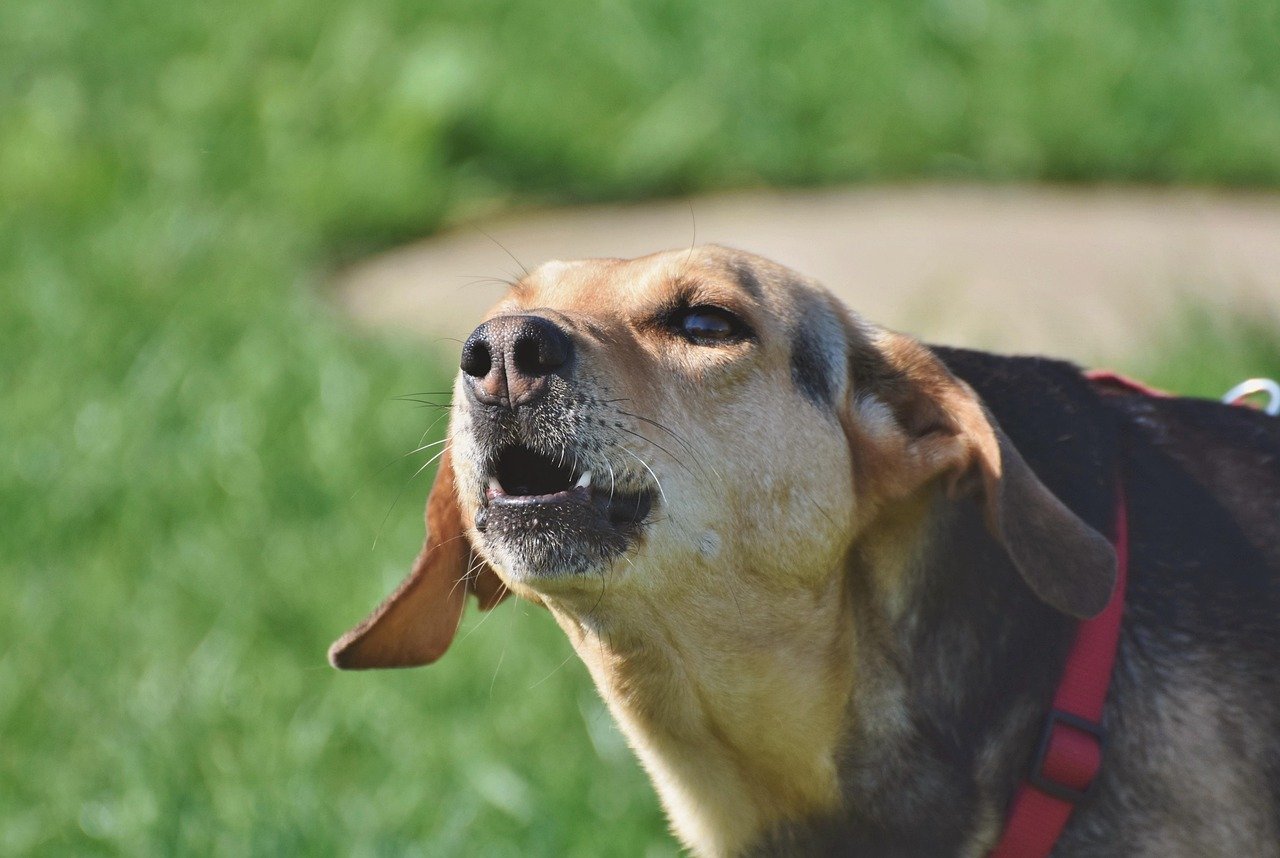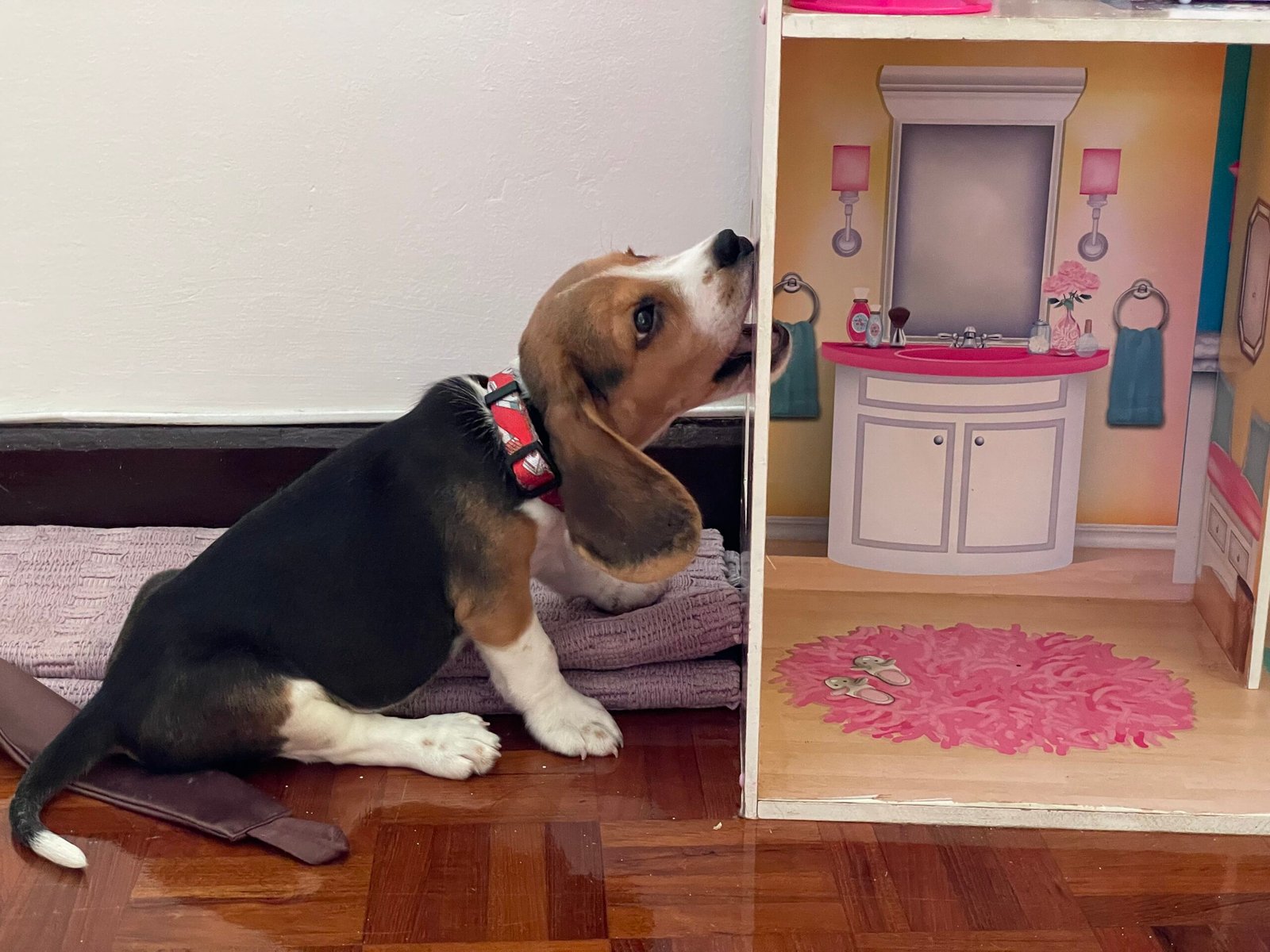Have you ever caught your dog glaring at you with those big, soulful eyes when you pet another animal or give attention to someone else? It’s easy to think our furry friends are all love and wagging tails, but beneath that adorable exterior, jealousy can simmer just like it does in humans. Dogs are pack animals by nature, craving attention and affection from their favorite people. When something or someone new enters their cherished circle, their emotions can run wild—sometimes in ways you might not even notice. If you’ve ever wondered if your dog is feeling a little green with envy, you’re not alone. Let’s dive into the surprising and sometimes hilarious ways your pup might be showing their jealous side.
Sudden Pushiness for Attention
Dogs may not get jealous in exactly the same way humans do, but that doesn’t mean they’re immune to feeling left out or possessive — especially when your attention is suddenly focused elsewhere. Whether it’s a new pet, a baby, or even your phone, dogs can show subtle signs of jealousy that are easy to miss until they escalate into behavior issues. From clinginess to acting out, these signals often speak volumes about your dog’s emotional state.
One of the clearest signs your dog is jealous is their desperate attempt to steal your focus. Imagine sitting on the couch, cuddled up with your partner or another pet, when suddenly your dog wedges themselves right between you. They may nudge your hand, paw at your arm, or even try to sit on your lap to redirect your affection. This pushy behavior isn’t just cute; it’s your dog’s way of saying, “Don’t forget about me!” Some pups even develop clever tricks, like rolling over or performing their favorite trick, in hopes you’ll shower them with attention instead. When your dog suddenly becomes your shadow the moment your attention shifts, jealousy could be the culprit.
Unusual Barking or Whining

Dogs are experts at communicating with their voices, and jealousy often brings out a new soundtrack in your home. If your normally quiet pup suddenly starts barking or whining when you’re holding another pet or chatting with a visitor, it’s not just random noise. This vocal protest is their way of signaling discomfort or frustration. Sometimes, the yips and whines are subtle, but other times they can become persistent and impossible to ignore. For many owners, the change is so abrupt it can be both surprising and a little bit funny—almost as if your dog is trying to join the conversation and make sure they’re not left out.
Destructive Behavior

Jealousy can be a powerful emotion, and for some dogs, it leads to surprising acts of destruction. Chewed shoes, shredded pillows, or even gnawed furniture can appear after a new pet or person enters your life. While this might seem like classic mischief, it’s often a cry for help. Dogs sometimes act out when they feel overlooked, hoping the chaos will draw your attention back to them. This behavior isn’t just naughty; it’s emotional. If your dog suddenly reverts to puppy-like destruction, it may be their way of expressing that all-important message: “Notice me!”
Sudden Loss of House Training

Few things are more shocking than finding a puddle or pile inside from a dog who’s been house-trained for years. When jealousy strikes, some dogs regress and forget their manners, “accidentally” marking their territory indoors. This behavior is especially common when a new pet arrives. The message is clear: your dog wants to reclaim their space and remind everyone who the real boss is. While frustrating, these accidents are often emotional, not just physical. If you see this sneaky sign, your dog is likely feeling threatened and unsure of their place in your heart.
Clinginess and Following You Everywhere
Have you noticed your dog glued to your side more than ever before? Jealousy can turn even the most independent pup into your constant companion. They may follow you from room to room, refusing to let you out of their sight. This clinginess is both heartwarming and a little overwhelming. For many owners, it’s like having a furry shadow that never wants to be left behind. Your dog’s increased need for proximity signals their desire to stay connected and ensure they’re not forgotten amidst new distractions.
Ignoring or Avoiding the “Rival”
Some dogs express jealousy in a more subtle way: by completely ignoring the newcomer. Whether it’s a new baby, pet, or even a significant other, your dog might act as if the intruder doesn’t exist. They may avert their eyes, refuse to play, or even leave the room when the “rival” is present. This chilly reception is a clear sign your dog is not happy about sharing your affection. It’s their way of saying, “If I don’t acknowledge them, maybe they’ll go away.” This behavior can be surprisingly funny, but it’s also a silent plea for reassurance from you.
Sudden Aggression or Grumpiness
A dog who’s usually sweet and gentle may suddenly growl, snap, or show their teeth when you pay attention to someone else. This shift in temperament can be startling. Jealousy-driven aggression is your dog’s way of defending their bond with you. They may try to chase away the newcomer or act out to keep you for themselves. It’s important to remember that this behavior is rooted in insecurity, not malice. If your dog starts showing signs of grumpiness or possessiveness, it’s a strong indicator that jealousy is brewing beneath the surface.
Frequent Interruptions During Interactions
Dogs are surprisingly clever when it comes to getting what they want. If you notice your pup constantly interrupting when you’re petting another animal, hugging a loved one, or even talking on the phone, they might be feeling left out. Some dogs will wedge themselves between you and the object of your attention, while others will bark, whine, or nudge until you give in. This persistent need to break up your interactions is a telltale sign of jealousy. It’s as if your dog is saying, “Hey, don’t forget about me—I’m still here!”
Changes in Eating Habits
Jealousy doesn’t just affect your dog’s behavior; it can also impact their appetite. Some dogs might refuse to eat when they feel upset or threatened by a new presence in the home. Others may eat more, hoping the extra attention at mealtime will bring them closer to you. Changes in eating habits can be subtle or obvious, but they often align with the arrival of a new pet, baby, or house guest. If your dog’s mealtime behavior shifts suddenly, it’s worth considering whether jealousy is playing a part.
Over-the-Top Affection—Or Withdrawal
Dogs have their own unique ways of expressing their feelings, and when jealousy hits, you might notice extremes. Some dogs become extra affectionate, showering you with kisses, cuddles, and tail wags in an effort to secure your love. Others do the opposite, withdrawing and sulking in a corner. Both reactions are driven by the same emotion: a fear of losing your attention. These mood swings can be dramatic and sometimes even a little heartbreaking to witness. Your dog’s dramatic display is their way of reminding you just how much they value your bond.
Recognizing the subtle signs of jealousy in your dog is key to maintaining a healthy, balanced relationship built on trust and security. While these behaviors might seem harmless at first, they’re often your dog’s way of asking for reassurance and attention. By staying attuned to their emotional needs and offering consistent affection, training, and structure, you can help your dog feel confident — even when your focus is occasionally elsewhere. A little awareness goes a long way in preventing jealousy from becoming a bigger issue and keeping your bond strong.